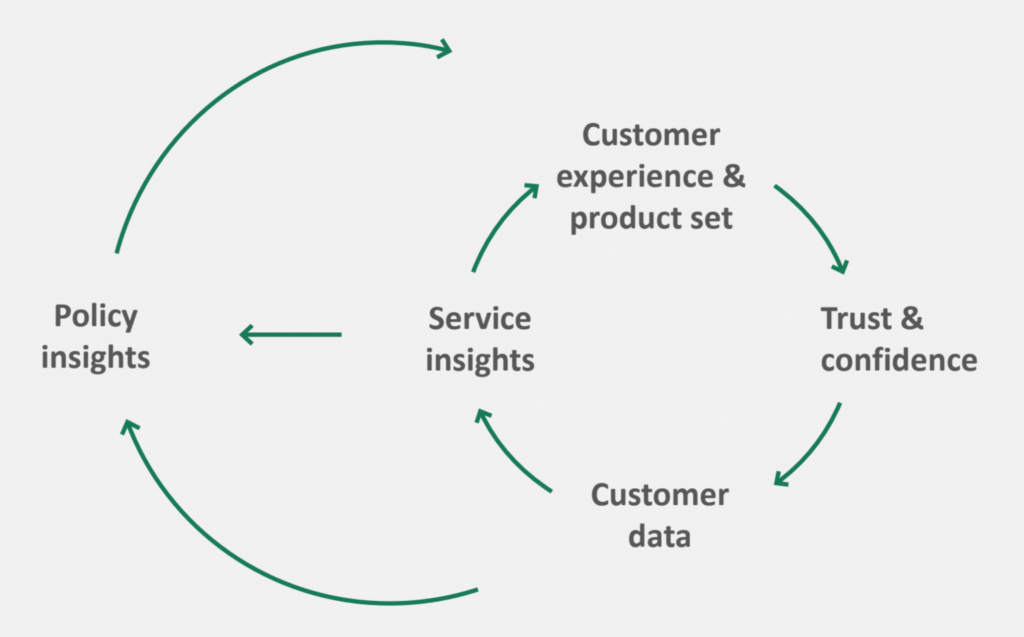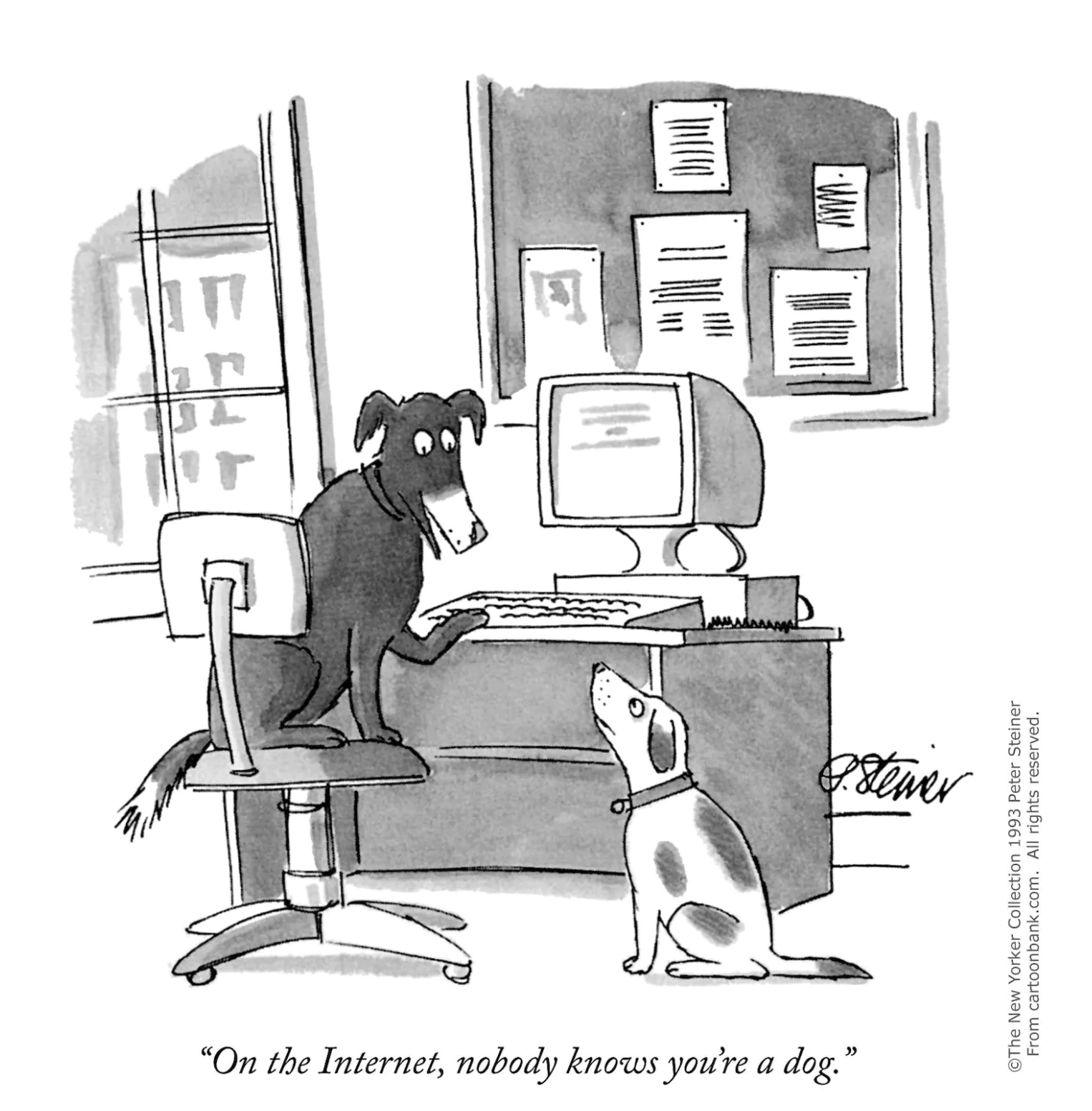In 1993, the New Yorker published a cartoon that showed a dog sitting at a personal computer, saying to another dog: “On the Internet, nobody knows you’re a dog.”
The comic would go on to become a global classic. It marked a watershed moment in history when the Internet shifted from obscurity to an everyday technology that everyone can use and understand
The comic was prescient in highlighting a fundamental issue at the heart of this revolutionary technology: trust.
How can we know who we’re really communicating with behind our screens? And what does that say about the information we’re receiving?
Three decades later, the speed and scale at which we’re inundated with information online – both accurate and inaccurate – have reached unprecedented heights.
Think about the last time you went an entire day without uncovering new information of any sort. From the moment we wake up, we’re engaging with text messages, emails, social media posts, advertisements, news, and more.
In this vortex of information and misinformation, the problem of trust continues to simmer.
Spotlighting trust in the pandemic era
For the past two and a half years, we’ve had a front row seat to witnessing how trust in governments and public institutions plays a crucial role in mitigating the impact of the COVID-19 pandemic, where real human lives were at stake.
Studies have shown that stronger trust in governments and public institutions are positively correlated with a higher willingness among citizens to adopt recommended health measures. Needless to say, the better organised governments are at responding to the pandemic, the higher the level of trust they enjoy from their people.
Singapore has emerged as an exemplary example in this regard. A recent poll revealed that about 75 percent of the public thinks that their government provided sufficient information on COVID-19 – and central to Singapore’s success is the quality of their digital services.
According to Salesforce’s third and latest Trust Imperative 3.0 report, published by Boston Consulting Group, 87 percent of respondents in Singapore say that their trust and confidence in government improves when they have had a great customer experience when using government services.
This confidence does not come easy. A staggering 94 percent of Singapore respondents expect digital government services to perform at the standard of leading public and private sector organisations around the world.
But the effort is well worth it. Investing in quality digital government services has an overall net effect of not only increasing trust and confidence, but also building a positive trust-cycle for governments that informs policy.
 (Source: The Global Trust Imperative.)
(Source: The Global Trust Imperative.)
The bottom-line is clear: digitally mature organisations from both public and private sectors respond better to rapidly changing environments.
The next frontier for trusted digital government services
I signed up for a new financial product recently in Singapore through a mobile banking app and marveled at how simple it was for me to share my personal data safely and securely with the bank through SingPass.
In less than the time it took me to get my morning coffee, my application was through.
The Trust Imperative 3.0 report also found that such data-driven personalisation is the future of digital government services.
Released in August 2022, the report found that 72 percent of respondents said that they were comfortable with government services being personalised to some extent and 85 percent of respondents expected services to be offered proactively.
Why the need to take the next step in digital experience? First, a more personalised, digital delivery model will improve customer satisfaction and service quality, contributing to greater community trust and confidence.
Second, digitally enabled service models allow governments to provide services at lower cost and greater efficiency, freeing up precious resources.
Third, deploying digital tools to manage routine services offers government employees improved productivity and efficiency, which allows governments to better attract and retain talent.
At the core of such personalised services is data. This process requires collecting, aggregating, and analysing data, and gaining the customer's informed consent to reuse data to create more personalised and proactive services.
Our latest research shows that most citizens are prepared to provide consent to governments re-using their data to deliver better services. In Singapore, 82 percent of respondents in our Trust Imperative Report say they want some form of personalisation. In fact, the country is the second most likely nation in the world to prefer personalised services with 90 percent saying they are willing to share personal data at or above minimum levels to receive more personalised and proactive servicing.
Importantly, this consent is based on assumptions that their data will be safe and not misused. This requires governments to establish a new data compact with their citizens, anchored by trust and transparency around data collection, storage and utilisation. It must also demonstrate a clear value exchange, prevent secondary use and sale of the data, and offer customers the right to withdraw their consent and delete their personal data.
Governments around the world face increasing pressure to transform their services and better serve their citizens. This transformation imperative is driven by trust. By delivering secure, technologically-sound and personalised digital services, governments can not only realise cost savings, but embed empathy in all customer interactions,ultimately increasing customer trust.
Cecily Ng is Senior Vice President and General Manager, Singapore, Salesforce



Tell us about your thoughtsWrite message